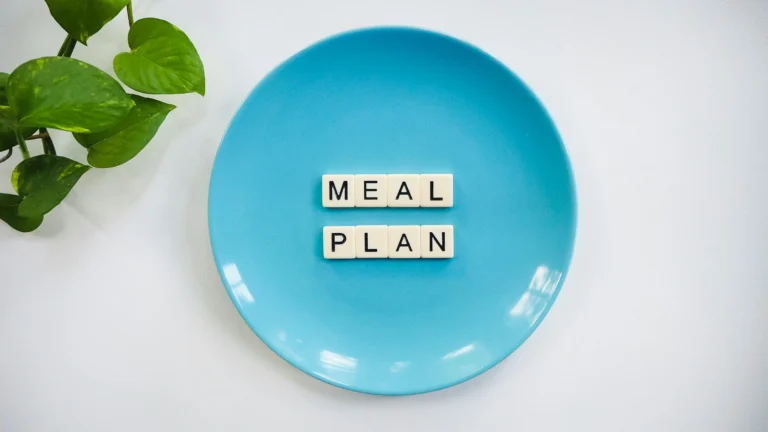Budget-Friendly Meal Planning
01. Introduction to Budget-Friendly Meal Planning
In contemporary society, it becomes daunting to maintain a healthy diet on a limited budget. Nonetheless, some strategies make it easier for someone to have nutritious meals without spending much money. This is possible through budget-friendly meal planning. By being cautious about your meals and shopping intelligently, you can eat delicious and healthy meals without having to spend too much cash.

The significance of eating nutritiously on a budget
A lot of people think that eating healthily means paying more for groceries. With the right strategy in place, one can prioritize nutrition without overspending their finances. A balanced diet comprising fruits, veggies, whole grains, and lean proteins is crucial for general body fitness as well as well-being. Therefore, by planning your meals earlier on and making sensible choices once at the store, you can feed yourself healthy food affordably enough.
Meal Planning Benefits Overview
Meal planning encompasses lots of benefits, apart from just saving money. It reduces food waste, saves time during hectic weekdays, and promotes healthy eating habits. When you plan your meals, you avoid last-minute takeout orders or unhealthy convenience foods. Additionally, meal planning enables you to try out new recipes and flavors to make mealtime more enjoyable for you and your family.
02. Understanding Basics of Meal Planning
Before venturing into budget-friendly meal planning, it is important to understand what meal planning is all about.
Definition of a Meal Plan
Meal planning refers to the practice of deciding on meals you will eat over the next week or month. This usually entails making a menu for each day, writing down a shopping list, and preparing ingredients beforehand. Menu preparation facilitates order while guaranteeing that one has everything required for making healthy home-cooked meals.
Need for Goals Setting
For successful meal planning, set measurable goals. Be it saving money, eating better, or cutting down on the waste of food, having an objective in place helps steer your efforts toward meal plans. As such, when setting a goal(s), consider your nutritional needs, dietary preferences, and budget constraints.
How to identify budget-friendly ingredients
When creating meals on a budget, it is important to give priority to cheap ingredients. Check what is in season, on sale, or available for bulk purchases. Such staples as rice, beans, pasta, and frozen vegetables are often inexpensive and adaptable; hence, they are best suited for economical meal planning needs.
03. Tips for Effective Meal Planning
Meal planning that works demands cautious thinking and readiness. Here are a few pointers to get you going:

Creating a weekly meal plan
Make a weekly meal plan that consists of breakfast, lunch, dinner, and snacks to start. Choose recipes that have common ingredients to reduce waste and save money. Think about preparing meals ahead of time or doing batch cooking so that you can save time during the week.
Utilizing leftovers creatively
Do not throw away leftovers! Be creative with them and use them in a different meal. For instance, leftover roasted veggies can be added to salads or soups or used with omelets, among others. Think about leftovers as an opportunity to try new flavor combinations and cut down on food waste.
Smart shopping is important
To avoid buying on impulse, shop with a list and stick to it. Optimize your grocery budget with sales, coupons, and discounts. Think about purchasing generic brands and buying in bulk to save even more money in the long run.
04. Cheap meal ideas
Below are some meal ideas that can motivate you while planning your meals:
Breakfast options
- Overnight oats with fruit and nuts
- Vegetarian omelette with whole-grain toast
- Greek yogurt topped with granola or fruits
Lunch ideas
- Quinoa salad with roasted vegetables
- Black bean and corn quesadillas
- Chickpea and vegetable stir-fry with brown rice
Dinner Recipes
- Spaghetti is served with marinara sauce, accompanied by a green salad on the side.
- Baked chicken thighs were served along with sweet potatoes and green beans.
- Lentil soup is served alongside crusty whole-grain bread.
05. Grocery Saving Strategies
Shopping for groceries is essential for budget-friendly meal planning. Below are some strategies for reducing costs:
Writing out a list before shopping at the store
Plan your meals for the week ahead of time and make sure that you have a detailed shopping list. Do not buy anything while at the store except what you have listed in your notebook. When you go shopping, always carry a list because it helps you avoid getting carried away and overspending.
Buying in large quantities
Buy staples like rice, beans, and pasta in bulk to save money per item. Buying goods in bulk also minimizes the cost of your food budget and ensures the availability of vital food items at all times.
Use coupons and discounts
Minimize your grocery bill by making use of vouchers, price cuts, and rewards programs. Hunt for these coupons in newspapers, electronic coupon websites, and grocery store apps. You could also consider shopping at discount supermarkets or buying less expensive generic brands.
06. Significance of Batch Cooking & Meal Prep
Batch cooking is a crucial method for meal planning on a tight budget. You can save time and money during the week by preparing meals ahead.
How batch cooking saves time and money
Preparing large amounts of food once and then dividing them into smaller sizes for future meals is called batch cooking. This means that you have to cook a few times a week, hence saving time. Additionally, this way enables the purchase of ingredients in large quantities, so one can benefit from sales promotions and discounts.
Insights into Meal Prep Success
Set aside time for meal preparation and planning each week Select recipes that can be scaled up and preserved in the freezer for subsequent use. Purchase good-quality containers to keep your prepared meals fresh in the refrigerator or freezer. On each container, write down the date and name of what you put inside it.
07. Introduction to Various Flavors and Nutrition in Cheap Meals
Eating well on a budget doesn’t have to mean giving up taste or nutrition. Use your imagination and enjoy many tasty yet healthy dishes without spending too much money.
How important is balanced dieting?
Ensure that your meals are made with different types of fruits, vegetables, whole grains, and lean meats. Make sure you include macronutrients (starches, proteins, and fats) in every meal so that they satisfy you nutritionally as well as have enough flavors. For spices, try different cooking methods with cheap ingredients.
Discovering Different Cuisines And Tastes
Broaden your culinary perspective by learning about various cuisines and tastes from across the world. Try out new international menus, including Italian, Mexican, or Asian-style cuisine at home. Most of these ethnic foods are not only inexpensive but also involve basic ingredients that have great tastes.
08. Avoiding Wasting Food
Food waste is a serious problem that has an impact on your wallet and the environment. You may lessen your environmental effects and save money by taking action to decrease food waste.
Storing food for later use
Keeping your foods in good condition makes it possible to avoid waste as well as prolong their shelf life. This can include acquiring useful storage containers and freezing, boiling, and vacuum-sealing food products for preservation over an extended period. To ensure that they are not wasted before they go bad, you should label them with dates of preparation and content.
Innovative ways of consuming leftovers
Don’t let leftovers go to waste! Use your imagination to create new dishes with leftover ingredients. By using up leftovers creatively, you can save money and reduce food waste.
09. Meal planning on a budget: Special dietary needs
Budget-friendly meal plans for individuals with special dietary requirements may seem elusive sometimes. But if you are resourceful enough, you can still enjoy meals that are healthy and delicious without going beyond your financial limits and still meet all the nutritional needs of such individuals.
Dietary restrictions for the provision of catering
Discover low-priced alternative ingredients for special needs that cater to your dietary requirements. For instance, if you are on a gluten-free diet, select natural gluten-free grains such as rice, quinoa, and oats. Try to find cheap substitutes for costly specialty items, and always go for whole foods that are not yet transformed.
Low-Cost Alternatives for Special Ingredients
Try out less expensive alternatives instead of specialty ingredients so that the costs remain low. For instance, tofu can be used instead of meat in budget vegetarian and vegan recipes. Fresh fruits and vegetables that have been frozen are often cheaper than fresh ones and can be utilized interchangeably in many dishes.
10. Striking the Balance Between Convenience And Budgetary Constraints
While convenience foods may save time, they often come at a higher price. Therefore, striking a balance between them is crucial when it comes to budget-friendly meal planning.
Making wise choices about convenience foods
Check out the cost and nutrition contents of convenience foods before buying them. Pre-packaged meals as well as other convenient items will save time, but they are much more expensive compared with what one can make at home. Consider if it is worth it or not when you think about its added value over homemade meals, for example.
Finding affordable alternatives to pre-packaged meals
Experiment with homemade versions of your favorite convenience foods to save money. For example, instead of buying pre-packaged snacks, make your trail mix with nuts, seeds, and dried fruit. Invest in time-saving kitchen gadgets such as a slow cooker or pressure cooker to simplify meal prep without breaking the bank.
11. FAQs
Q1: Is meal planning worth the effort?
Yes, meal planning can save you time, money, and stress in the long run. By planning your meals, you can avoid last-minute takeout orders and unhealthy convenience foods.
Q2: How can I save money on groceries without sacrificing nutrition?
Look for affordable ingredients such as beans, grains, and frozen vegetables, and prioritize whole, unprocessed foods whenever possible. Shopping with a list and taking advantage of sales and discounts can also help you save money on groceries.
Q3: I have dietary restrictions. Can I still meal plan on a budget?
Absolutely! You may have tasty, nutrient-dense meals that satisfy your nutritional requirements without going over budget if you put a little thought and forethought into them. Look for affordable alternatives for specialty ingredients and experiment with budget-friendly recipes.
Q4: How can I avoid food waste when meal planning?
Properly storing food, using up leftovers creatively, and planning meals based on what you already have on hand can help reduce food waste. Label leftovers with the date and contents to ensure that they are used before they spoil.
Q5: Where can I find more budget-friendly meal-planning resources?
Explore websites, apps, books, and community resources for budget-friendly meal planning tips, recipes, and support. Don’t hesitate to reach out to local food banks, community gardens, and cooking classes for additional assistance.
12. Conclusion
Budget-friendly meal planning is a valuable skill that can help you eat well without breaking the bank. By prioritizing nutritious ingredients, planning your meals, and shopping smartly, you can enjoy delicious and wholesome food while saving money and reducing food waste. Whether you’re a busy parent, a college student, or a retiree on a fixed income, budget-friendly meal planning is within reach. Start small, experiment with new recipes and flavors, and enjoy the satisfaction of nourishing yourself and your loved ones on a budget.







